有读者问到了这样一个问题:
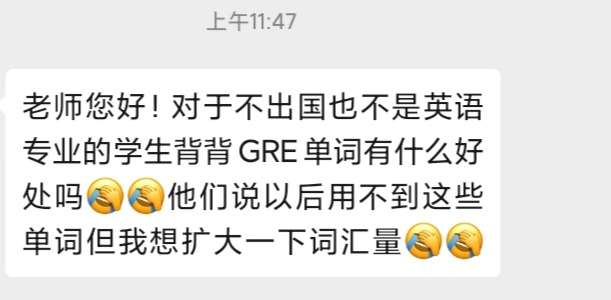
“对于不出国也不是英语专业的学生背背GRE单词有什么好处吗?他们说以后用不到这样的单词”,对于这一问题,我的观点是:如果我们需要将英语提升到中高级水平,那么背GRE单词是非常有必要的。
在不少人的印象中,GRE单词似乎都是生僻词,连母语人士也很少用。但这一印象并不准确。比如这是我从新东方GRE红宝书中随机选取的一页:
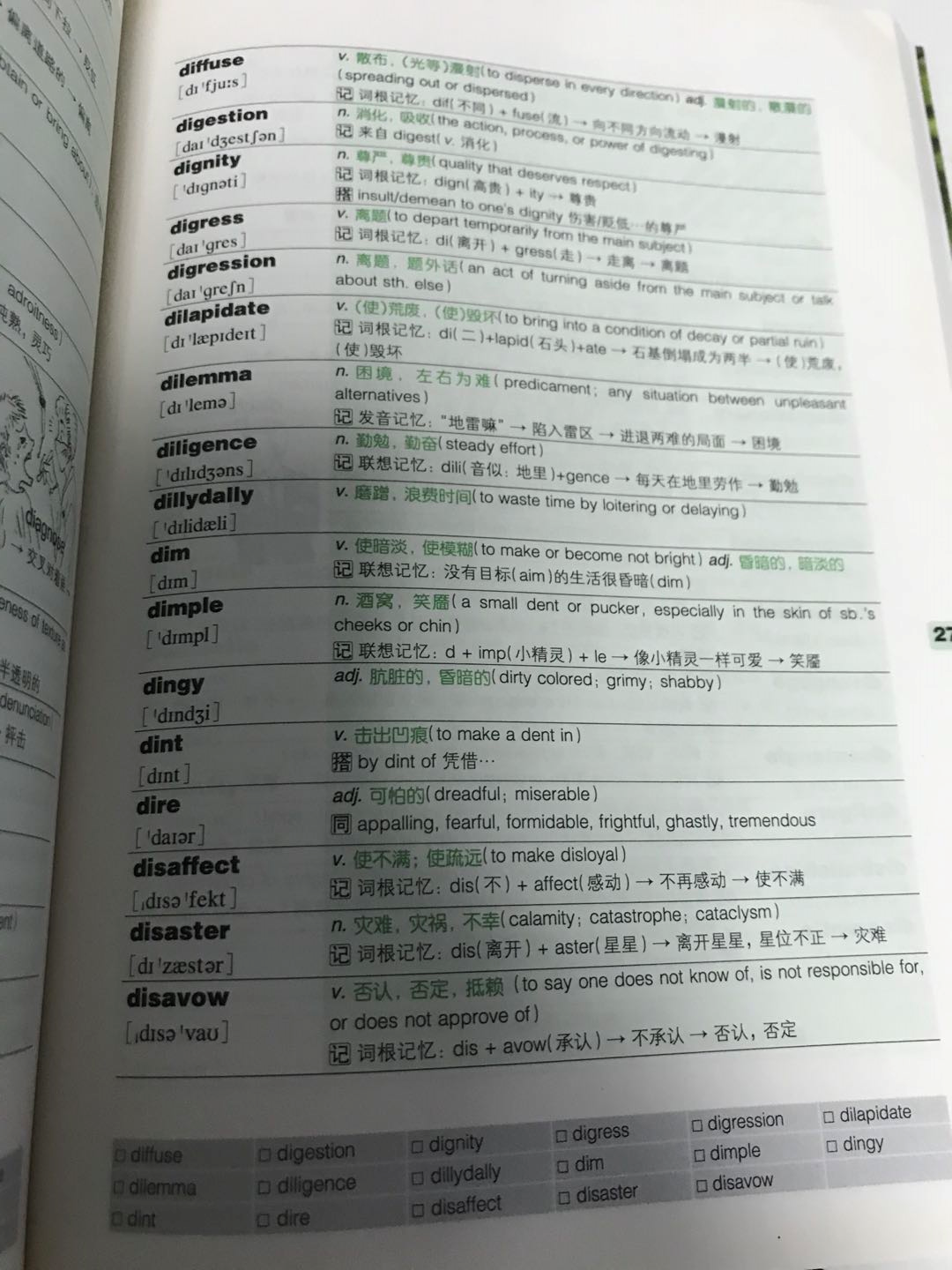
可以看到,这一页中真正的生僻词几乎没有,其中diffuse, digestion, dignity, dilapidated, dilemma, diligence, dim, dingy, dire, disaster这些词都可以算常见词,它们在平时的阅读和听力中出现的频率很高。比如对于dilapidated一词,新概念英语3就有这样的句子:Sitting down on a dilapidated wooden fence near the field, we opened a couple of tins of sardines and had a picnic lunch.
即使对于其中最生僻的一个词dillydally,外媒中也有不少使用例子,例如《纽约时报》在一篇关于大学生活的文章里面就用了这样一个标题:The Big Dilly-Dally,作者在文章中建议大学生不要拖延,并提供了一些克服拖延症的方法。

由此可以看出,所谓的GRE单词并不生僻,即使对于其中稍难一点的词,它们也有广泛的使用场景。事实上,经常阅读外刊和原版书的同学会发现,GRE级别的单词在这些材料中出现的频率并不低。举个例子,下面是一篇《经济学人》文章的段落节选:
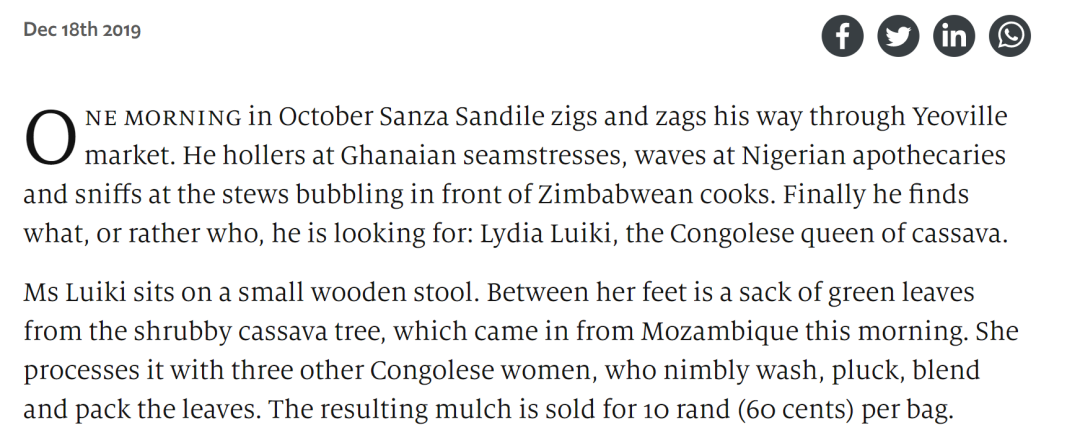
One morning in October Sanza Sandile zigs and zags his way through Yeoville market. He hollers at Ghanaian seamstresses, waves at Nigerian apothecaries and sniffs at the stews bubbling in front of Zimbabwean cooks. Finally he finds what, or rather who, he is looking for: Lydia Luiki, the Congolese queen of cassava.
Ms Luiki sits on a small wooden stool. Between her feet is a sack of green leaves from the shrubby cassava tree, which came in from Mozambique this morning. She processes it with three other Congolese women, who nimbly wash, pluck, blend and pack the leaves. The resulting mulch is sold for 10 rand (60 cents) per bag.
上文中加粗的单词都属于GRE词汇,如果我们不掌握它们,要读懂这类文章会比较困难。又比如,这是畅销书 The Da Vinci Code(达芬奇密码)的第一章节选,感受一下其中的单词难度:
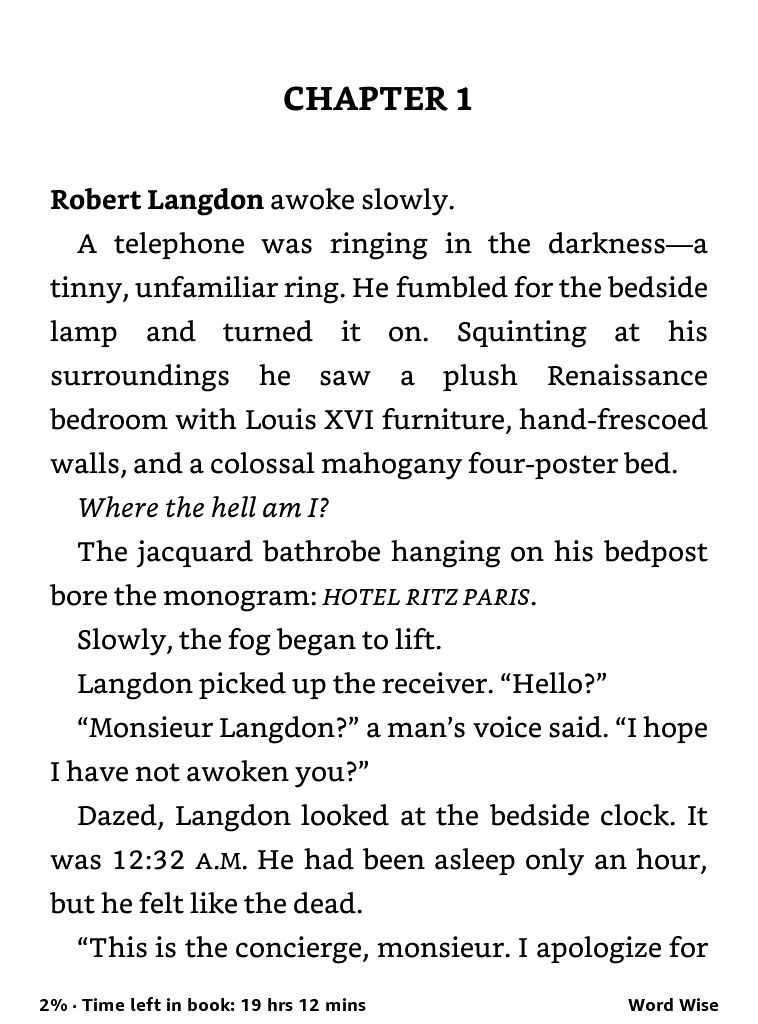
书中诸如fumble, plush, fresco, mahogany, jacquard, monogram, concierge这些词也都属于GRE级别的词汇。也就是说,如果我们想要比较顺利地读懂外刊和原版书,那么GRE单词是很有必要掌握的。
我们需要多大的词汇量?
下面是词汇量测试网站 http://www.testyourvocab.com 统计出的英语母语人士词汇量分布表:
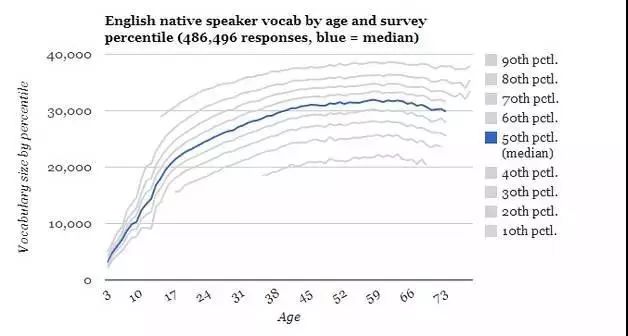
可以看出,24岁左右的成年人词汇量中位数接近25000,考虑到词汇测试的误差,这一数字应该落在20000到25000区间。我们要追求的词汇量应该尽可能接近或达到英语成年母语者的中位数水平,即在两万到两万五左右(很多GRE词汇其词频也都大致落在这一区间)。
|


